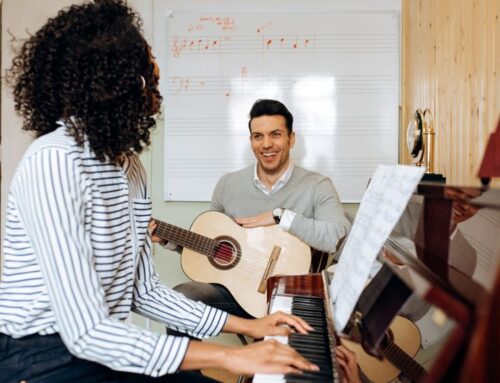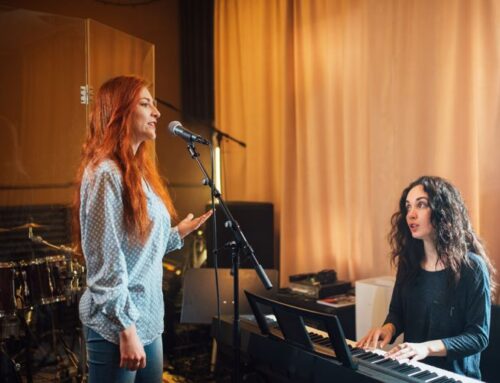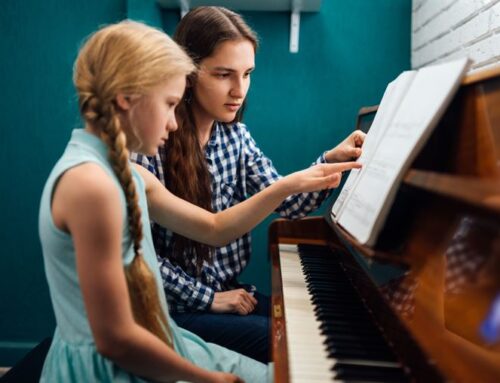Even going all the way back to when your child was a baby, music has had numerous benefits for everyone who takes part. From the days of singing them lullabies to when they start learning how to sing or play an instrument themselves, music has played a role in the lives of most youth. While there are countless proven benefits of listening to music, there are also many reasons why actually learning how to play an instrument is a great idea too, especially for teenagers!
Positive effects of playing music
At Capstone Music in Burlington, we’re focused on teaching music – of course – but also on helping students realize many of the benefits. Our music teachers are skilled, supportive and focus on both fun and learning!
There are many benefits of playing music for teens and youth. From improved academic performance to a positive impact on their social skills and creativity, playing some sort of musical instrument has been shown to have many positive effects on kids.
1. Improved grades
Many studies over the last few decades have shown that students who are involved in some form of music education during middle and high school are more likely to attend school regularly, graduate, have a higher level of math proficiency and even have better overall test scores than those students who don’t participate in a music program.
2. Social growth
Playing music, whether as part of a school band, social band or in music lessons can play a positive role in the social lives of youth. Having a skill that they are confident in helps kids to learn how to relate to their peers and use their common hobbies to create a bond.
3. Lower risk of substance abuse
Despite the contrary message often seen in pop culture, high school students who participate in a music group or class at school tend to have a lower rate of substance use than those who don’t play music. This likely comes down to the idea that kids who play an instrument have a reliable way to work through emotions and cope with stress and aren’t looking for something to help them do so.
4. Increased self discipline
Though music lessons and classes have a teacher to help guide students and keep them on track, learning how to play an instrument is really a task that a student has to take on for himself. Dedicating time to learning how to hit notes and play songs takes discipline and when youth learn this ability to go after what they want, it carries over into other parts of their life, too.
5. Self expression
When teens have a way to channel their thoughts, moods, feelings and ideas into a creative outlet, they have an easier time expressing themselves. A musical instrument, whether it is played for personal interests’ sake or as part of a school program, helps offer teens a way to be themselves.
6. Creativity
Playing music is the perfect way for youth to expand their creativity and have the freedom to try out new things. The act of putting notes together to form a new pattern or musical story helps encourage youth to continue having fun with their ideas.
7. Hand eye coordination
The ability to read sheet music and play notes on an instrument at the same time is a skill that extends into many areas of life. Though the actual act of reading and playing music at the same time might not be a relatable skill, the fact that your mind can work on both visual, physical and auditory cues at the same time is applicable to most areas of life.
8. Emotional processing
One of the hardest things to go through as a teen relates to emotions and how to process them. Being able to use music to help work through topics like family and peer pressures, academic expectations, friendship and social dynamics, and other even more difficult things can help a young mind grow and thrive.
Playing music is a skill that should be nurtured
With so many positive reasons to play music, it’s definitely a skill that should be fed and nurtured. The benefits of playing music will not only factor into a teen’s life now, they’ll stick with them long into the future as well.
Though there are also many benefits to listening to music, and many of them overlap what we’ve talked about here, in order to maximize the positive effects of music on a teen get them signed up for music lessons so they can start playing music as well as just listening to it!






